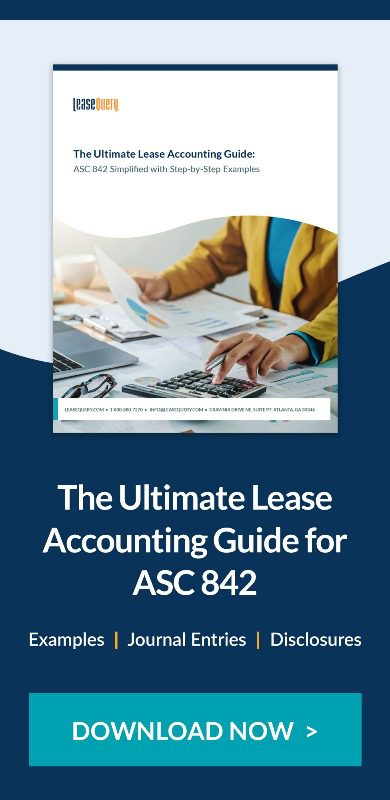Securing a commercial lease goes beyond agreeing on a monthly rent. It’s about strategically leveraging every available tool to optimize costs and enhance flexibility. One of the most powerful tools at your disposal is the rent concession.
This guide will cover what rent concessions are, the different forms they take, their potential impacts, and practical tips for managing them effectively.
What is a rent concession?
Rent concessions, also referred to as lease concessions, are incentives offered by landlords to prospective or existing tenants to make a rental property more attractive and secure a lease agreement or renewal. They are a strategic tool used by landlords, particularly in competitive markets or during periods of high vacancy. Rent concessions aren’t always straightforward reductions in monthly rent; instead they represent a temporary or permanent adjustment to the lease terms, providing a direct financial or material benefit to the tenant. For you, the corporate lessee, it represents a valuable opportunity to reduce your total cost of occupancy.
What forms can a rent concession take?
Rent concessions come in a diverse array of forms. Common types of rent concessions include:
- Free Rent Periods: A specified number of months of occupancy without rental payments, often at the beginning or end of the lease term. This is one of the most common forms of rent concession.
- Reduced Rent: Lowered monthly rent for a defined period, or in some cases, for the entire lease term (though this verges on a permanent rent adjustment rather than a temporary concession).
- Waived or Reduced Fees: Eliminated or decreased charges like application fees, security deposits, pet fees, or move-in fees to reduce the tenant’s upfront costs.
- Tenant Improvement (TI) Allowances: A sum of money provided to the tenant to customize or build out the leased space to meet their specific business needs, This is another common concession in commercial real estate and is designed to lower a tenant’s upfront costs.
- Free or Discounted Amenities/Services: Can include complimentary parking, gym memberships, storage units, or even covering certain utility costs.
- Moving Assistance: To ease the transition and lower upfront costs, landlords might contribute to or fully cover a tenant’s moving expenses.
- Flexible Lease Terms: Shorter or longer lease terms, or options for early termination, can be a compelling incentive in competitive markets.
Potential impacts of rent concessions
While rent concessions are generally a benefit to tenants, they do introduce layers of complexity that accounting and real estate teams must navigate.
For accounting teams
- Effective Rent vs. Stated Rent: Concessions mean the “effective rent” (the true cost of the lease over its lifespan) will almost always differ from the “stated rent” on the lease and must be accounted for correctly.
- Balance Sheet Impact: Rent abatements and free rent periods directly affect the lease liability and right-of-use (ROU) asset. Precise calculation and amortization over the lease term are essential for compliance and accurate financial reporting.
- Compliance and Audit Preparedness: Proper documentation of all concessions is critical for internal audits and maintaining compliance with accounting standards and regulatory requirements.
- Budgeting and Forecasting: Concessions create variations in your cash flow. Your accounting team must accurately forecast rental expenses, factoring in the exact timing and value of these benefits, to ensure precise budgeting and financial planning for your organization.
- Payment Scheduling: Concessions directly affect payment schedules. Lease management systems need to accurately reflect when payments are due, when they are reduced, or when they are waived.
For corporate real estate departments
- Lease Negotiation and Strategy: CRE professionals need to be well-versed in typical concession offerings within your target markets. Understanding current market conditions (e.g., high vacancy rates, economic downturns) provides significant leverage to negotiate highly favorable concession packages.
- Total Cost of Occupancy (TCO) Reduction: Concessions are a direct avenue to reduce your organization’s TCO. This extends beyond just base rent to include operating expenses, build-out costs, and various other fees. A well-negotiated concession package can lead to substantial savings.
- Proactive Lease Renewals and Expirations: Many concessions are temporary. Lease management teams must proactively track concession expiration dates to understand when the “full” rent will resume. This allows for timely renegotiation discussions and avoids unexpected financial impacts for the tenant, strengthening relationships.
Tips for negotiating and managing rent concessions
To maximize the benefits of rent concessions, consider these strategic tips:
- Do Your Homework: Before entering negotiations, thoroughly research market conditions, average rental rates, and common concession offerings in your desired location.
- Understand Your Needs: Clearly define your organization’s specific requirements, including space build-out needs, desired lease term, and budget constraints.
- Prioritize Concession Types: Not all concessions are equally valuable. Determine which types of concessions offer the most significant financial benefit or strategic advantage for your organization (e.g., free rent for upfront savings, TI allowance for custom space).
- Negotiate Holistically: Don’t just focus on base rent. Negotiate the entire package, including concessions, operating expense caps, renewal options, and early termination clauses.
- Get Everything in Writing (and Be Specific!): Every detail of every concession must be explicitly and unambiguously documented in the lease agreement. Ensure start and end dates, exact amounts, and any conditions are crystal clear.
- Leverage Lease Accounting and Administration Software: A robust lease accounting and administration system, like LeaseQuery, is non-negotiable. It helps you accurately track concession schedules, automate complex accounting entries (like ROU asset and lease liability amortization), manage payment variations, and ensure compliance with ever-evolving accounting standards.
- Plan for Concession Expiry: Proactively manage your lease portfolio by noting when concessions are set to expire. This gives you ample time to either budget for the increased “full” rent or re-enter negotiations for new terms or concessions.
- Understand the Financial Impact: Work closely with your accounting team to understand how each potential concession will impact your balance sheet, income statement, and cash flow under ASC 842 or IFRS 16.
Summary
Rent concessions are a powerful strategic asset for corporate lessees, offering significant opportunities to reduce costs and gain flexibility in your commercial real estate portfolio. However, effectively leveraging these incentives demands a sophisticated understanding from your accounting, corporate real estate, and lease management teams. By prioritizing meticulous data management, proactive negotiation, and robust financial analysis, your organization can successfully navigate the complexities of rent concessions and maximize the value of your commercial leases.






